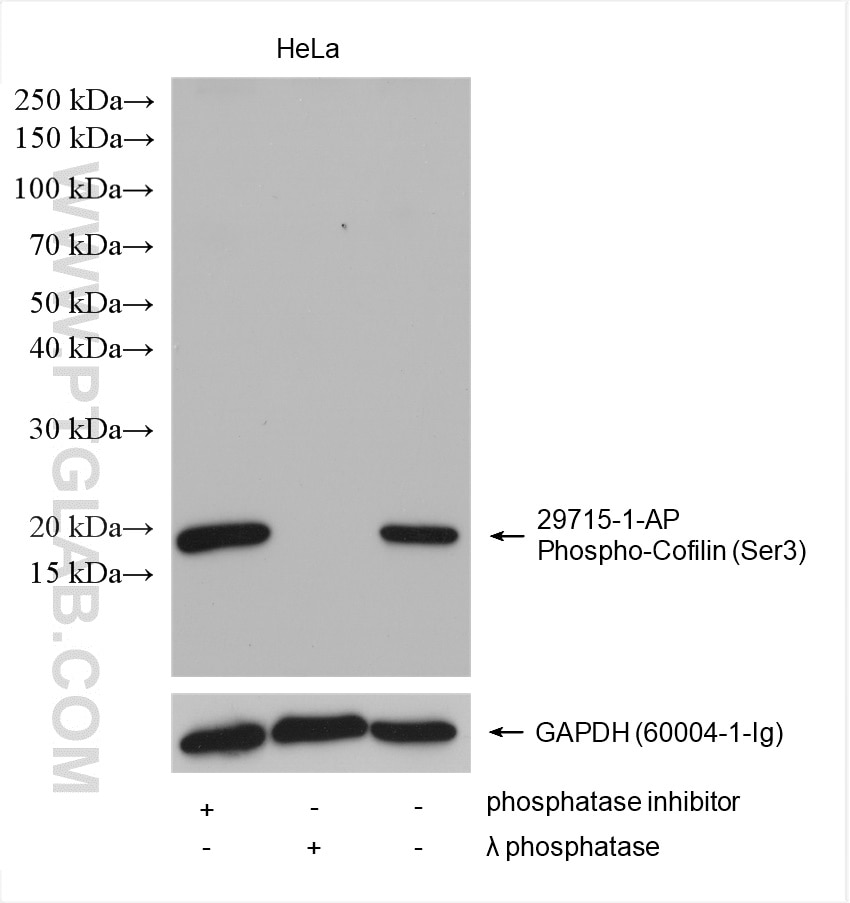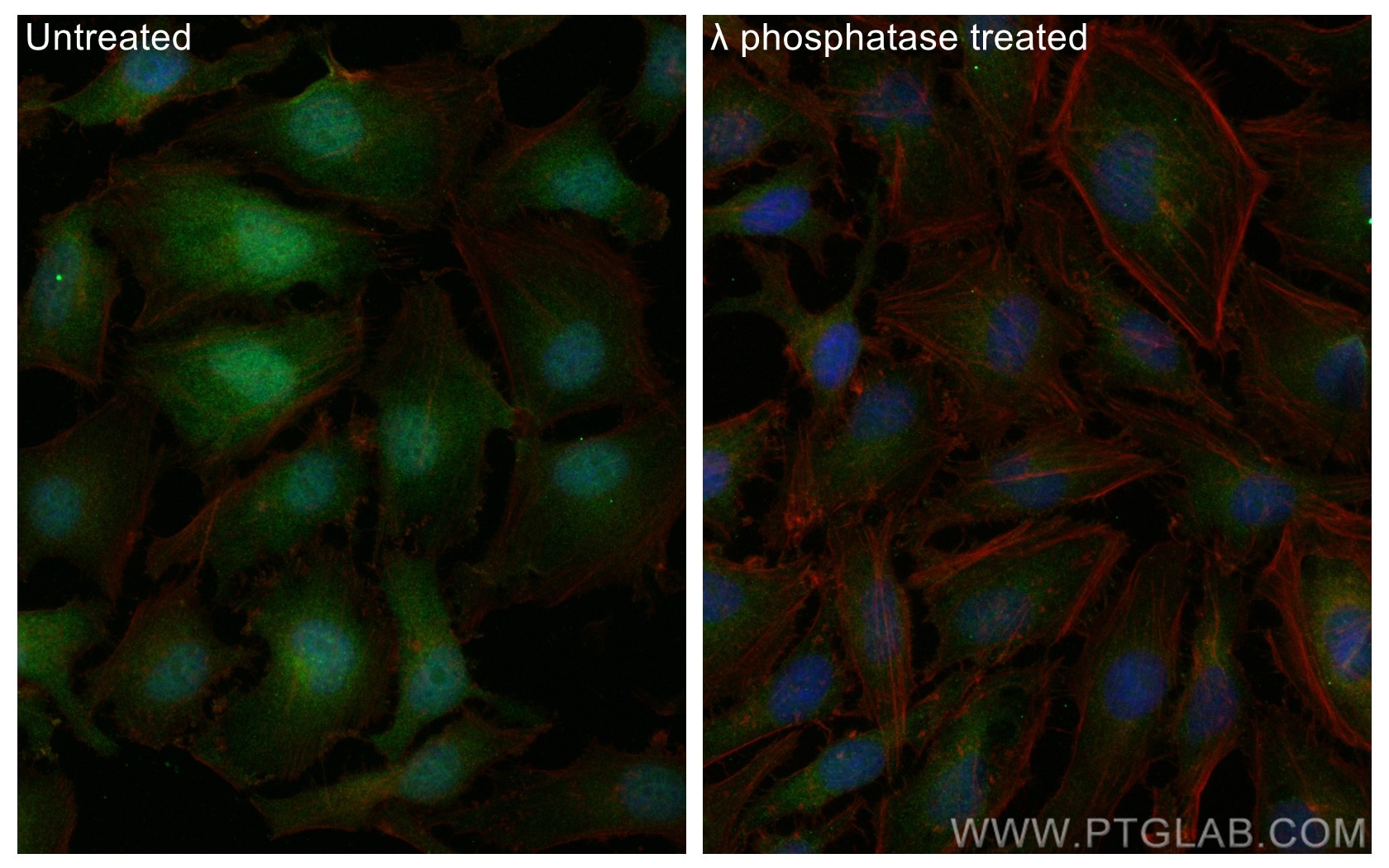Phospho-Cofilin (Ser3) Polyklonaler Antikörper
Phospho-Cofilin (Ser3) Polyklonal Antikörper für WB, IF/ICC, ELISA
Wirt / Isotyp
Kaninchen / IgG
Getestete Reaktivität
human
Anwendung
WB, IF/ICC, ELISA
Konjugation
Unkonjugiert
Kat-Nr. : 29715-1-AP
Synonyme
Geprüfte Anwendungen
| Erfolgreiche Detektion in WB | Mit λ-Phosphatase behandelte HeLa-Zellen, HeLa-Zellen |
| Erfolgreiche Detektion in IF/ICC | Mit λ-Phosphatase behandelte HeLa-Zellen |
Empfohlene Verdünnung
| Anwendung | Verdünnung |
|---|---|
| Western Blot (WB) | WB : 1:500-1:2000 |
| Immunfluoreszenz (IF)/ICC | IF/ICC : 1:200-1:800 |
| It is recommended that this reagent should be titrated in each testing system to obtain optimal results. | |
| Sample-dependent, check data in validation data gallery | |
Produktinformation
29715-1-AP bindet in WB, IF/ICC, ELISA Phospho-Cofilin (Ser3) und zeigt Reaktivität mit human
| Getestete Reaktivität | human |
| Wirt / Isotyp | Kaninchen / IgG |
| Klonalität | Polyklonal |
| Typ | Antikörper |
| Immunogen | Peptid |
| Vollständiger Name | cofilin 1 (non-muscle) |
| Berechnetes Molekulargewicht | 18 kDa |
| Beobachtetes Molekulargewicht | 18 kDa |
| GenBank-Zugangsnummer | BC012318 |
| Gene symbol | Cofilin |
| Gene ID (NCBI) | 1072 |
| Konjugation | Unkonjugiert |
| Form | Liquid |
| Reinigungsmethode | Antigen-Affinitätsreinigung |
| Lagerungspuffer | PBS with 0.02% sodium azide and 50% glycerol |
| Lagerungsbedingungen | Bei -20°C lagern. Nach dem Versand ein Jahr lang stabil Aliquotieren ist bei -20oC Lagerung nicht notwendig. 20ul Größen enthalten 0,1% BSA. |
Hintergrundinformationen
Cofilin is a ubiquitous actin-binding protein required for the reorganization of actin filaments. It is a member of the ADF (actin-depolymerizing factor)/cofilin family that is a key regulator of actin dynamics and essential for cellular motility, cytokinesis, and endocytosis. Cofilin activity is tightly regulated by phosphorylation and dephosphorylation. Phosphorylation at Ser3 can inhibit its activity, also causing translocation from the nucleus to the cytoplasm.
Protokolle
| PRODUKTSPEZIFISCHE PROTOKOLLE | |
|---|---|
| WB protocol for Phospho-Cofilin (Ser3) antibody 29715-1-AP | Protokoll herunterladen |
| IF protocol for Phospho-Cofilin (Ser3) antibody 29715-1-AP | Protokoll herunterladen |
| STANDARD-PROTOKOLLE | |
|---|---|
| Klicken Sie hier, um unsere Standardprotokolle anzuzeigen |
Rezensionen
The reviews below have been submitted by verified Proteintech customers who received an incentive for providing their feedback.
FH Udesh (Verified Customer) (03-05-2024) | Worked well for WB of glioma cells at 1:800 in 3% BSA
|



